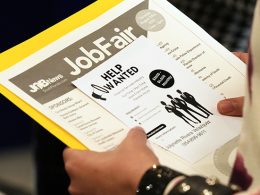Emerging Markets Diary (July 5, 2010)
Strengths
- Thailand's Finance Ministry raised its 2010 GDP forecast to 5-6 percent from March's estimate of 4-5 percent, as surging exports more than offset the limited impact of the country's worst political violence in nearly two decades.
- Singapore's bank loans rose 8 percent year-over-year in May, supported by the strongest month-over-month expansion in business loans since September 2008. The rise was the best year-over-year growth in housing loans in more than a decade.
 The June survey of Russian purchasing managers from VTB Capital showed a further overall improvement in manufacturing sector business conditions and the pace of improvement is strengthening. Output rose at the fastest rate since April 2008, supported by further new order growth.
The June survey of Russian purchasing managers from VTB Capital showed a further overall improvement in manufacturing sector business conditions and the pace of improvement is strengthening. Output rose at the fastest rate since April 2008, supported by further new order growth.- Brazil's Central Bank increased the country's GDP forecast for 2010 to 7.3 percent from 5.8 percent, fueled by domestic demand.
- Fitch revised Brazil's credit rating to positive citing 'better than expected resilience and economic performance in the face of global recession.'
- Remittance to Mexico in May increased by 12 percent year-over-year to $2.1 billion. This should be supportive of retailers as many local residents rely on outside remittance for their consumption.
Weaknesses
- China’s domestic A-Share market declined almost 27 percent in the first half of this year, among the bottom 10 equity markets in the world measured in U.S. dollars. The fall was driven by negativity towards a domestic housing crackdown and uncertainty around exports to Europe.
- Despite approval by 75 percent of shareholders, the government of Portugal blocked a sale by Portugal Telecom of its stake in Vivo (Brazil) to Telefonica. The European Court of Justice will rule on the legality of this move. Either way, we expect that Portugal Telecom will eventually divest of its stake in Vivo.
Opportunities
- While the official signing of the widely anticipated Economic Cooperation Framework Agreement (ECFA) between Taiwan and mainland China met with an underwhelming response from investors, the longer-term, structural case remains positive for Taiwan due to lower tariffs and freer market access and service flows.
- Russian railway cargo turnover stats for June showed 14 percent growth in building materials and 16 percent in cement year-on-year, hinting that the construction sector might finally be switching away from the crisis-induced downtrend.
- Virgin America will commence flights to Mexico, including Cancun, at the end of the year. ASUR, the operator of the Cancun airport, will likely see more traffic as a result.
Threats
- Near-term investor sentiment in China will likely be weighed down by slowing Chinese exports and further policies to depress housing prices.
- Russian business newspaper Vedomosti writes that the Russian Ministry of Economic Development voiced its support for the proposed hikes in the mineral extraction tax. The newsflow remains negative for Russian mineral resource producers, particularly natural gas companies which previously enjoyed a relatively light tax burden.
- Lower commodities prices will be a headwind for resource-rich economies in Latin America.









